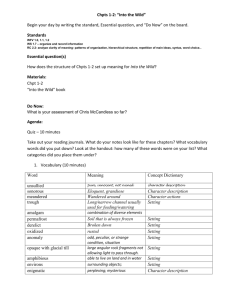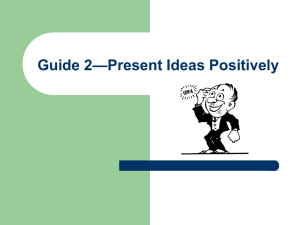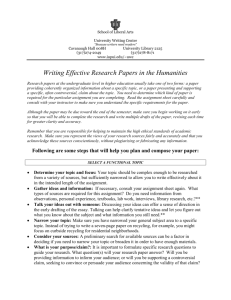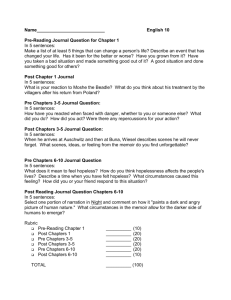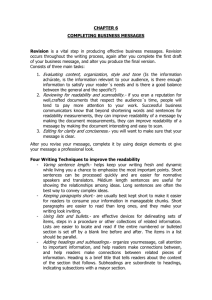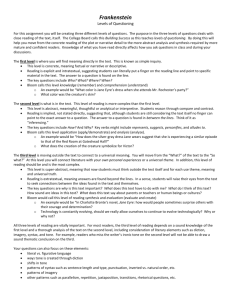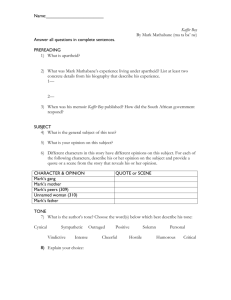Into the Wild Ch. 3-4 Written Response Questions
advertisement
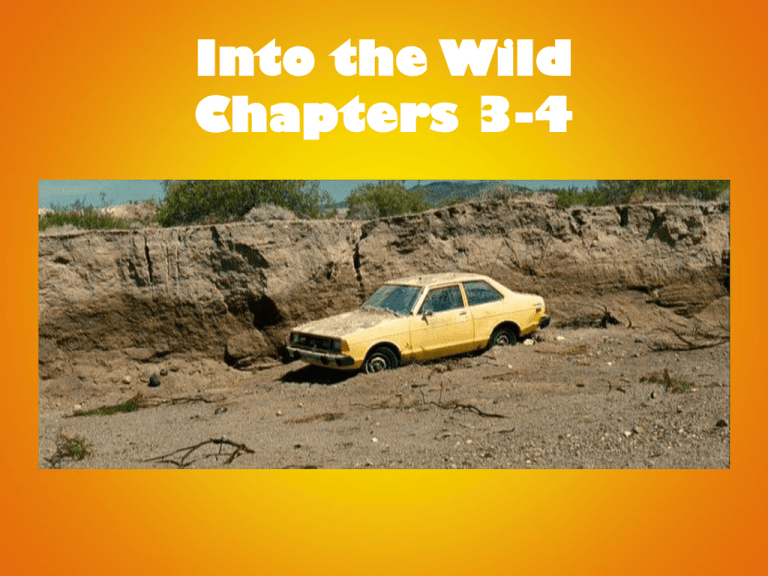
Into the Wild Chapters 3-4 Free Write Read the following quote then explain what Thoreau is talking about. Do you agree or disagree with this idea? Why? Does McCandless agree or disagree with this idea? Why? How do you know (provide evidence from text). It is preoccupation with possessions, more than anything else, that prevents us from living freely and nobly. – Henry David Thoreau Rhetorical Analysis Read “The Box Man,” by Barbara Lazear Ascher and create a table with three columns (Strategy - Notes - Evidence) in which you discuss each of the following strategies: • Meaning – What is the main idea? • Audience – Who is the intended audience? What assumptions does the author make about them? • Purpose – Why did the author write the essay? What did s/he hope readers would gain from it? • Method/Structure – What methods does the author use to develop the main idea, and how do these methods serve the author’s subject and purpose? • Language – How are the author’s main idea and purpose revealed at the level of sentences and words? Tone Create a compare-contrast map: for Chris’ letter to his sister vs. his letter to his parents and answer the following frame of reference questions: • How is the language and tone used toward his sister different from the language and tone used toward his parents? • What might account for this difference? • Why is this information important to readers? 3. Present map to class. Alexander Supertramp Read the last paragraph in Ch. 3: Driving west out of Atlanta… he was now Alexander Supertramp, master of his own destiny. Answer in 1 to 3 sentences each: • How important is a name to your identity? Does it matter what people call you? Why? • Why would Chris change his name? • What theme in the book does this passage relate to? How so? Language Read the end of Ch. 4: It is the experience, the memories, the great triumphant joy of living to the fullest extent in which real meaning is found. Answer in one short paragraph (4-6 sentences): Considering the various experiences Alex had in Chapters 3 & 4, what “meaning” do you think Alex has found? Use textual evidence to support your assertions. Quick Response Many have labeled Chapter 4 as evidence of McCandless’ foolishness. Do you agree or disagree with this idea? Why or why not? How does the following quote apply to the question: What does it mean to be a rebel? I wanted movement and not a calm course of existence. I wanted excitement and danger and the chance to sacrifice myself for my love. I felt myself in a superabundance of energy which found no outlet in our quiet life. – Tolstoy Extended Analysis Create a table like the one you made for “The Box Man,” and discuss each of the strategies for Into the Wild Chapters 3-4: • Meaning – What is the main idea? • Audience – Who is the intended audience? What assumptions does the author make about them? • Purpose – Why did the author write the essay? What did s/he hope readers would gain from it? • Method/Structure – What methods does the author use to develop the main idea, and how do these methods serve the author’s subject and purpose? • Language – How are the author’s main idea and purpose revealed at the level of sentences and words?
